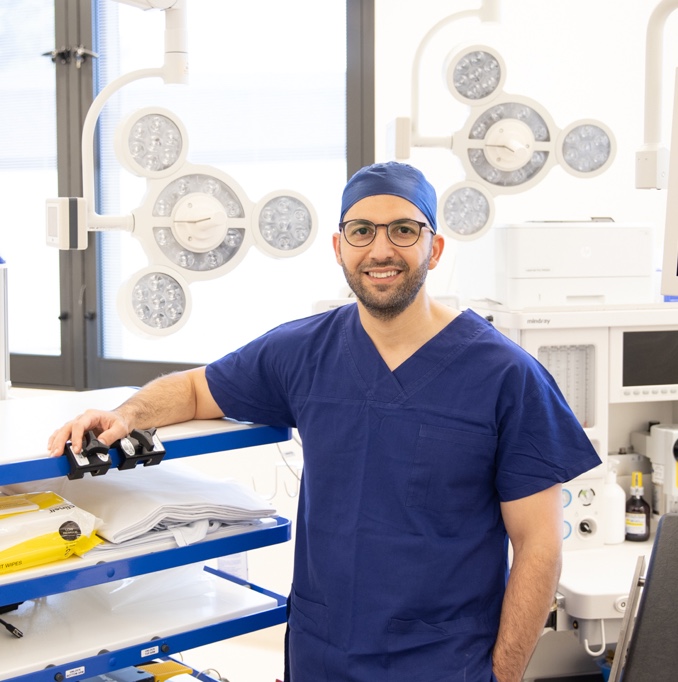Fertility Preservation
Fertility preservation is the area of medical science that allows both women and men preserve their ability to fall pregnant in the future.

We specialise in providing fertility preservation care to patients.
Common reasons men and women seek fertility preservation:
- Cancer diagnosis requiring chemotherapy or radiotherapy
- Age-related, such as getting older but not currently in a relationship
- Health-related, or an underlying medical/surgical condition that puts fertility at risk
How cancer affects your fertility depends on the type of cancer you have and on the treatment that you receive. Infertility after cancer treatment can be temporary, or it can last for a few months or a few years. In other situations, it may be permanent.
- Women: Some cancer treatments may damage your ovaries and decrease your ovarian reserve. Cancer treatment may also impact your hormone production and the communication between your brain and your ovaries. Surgery, radiation therapy and chemotherapy to treat cancer may damage your reproductive organs. In some cases your reproductive organs will have to be removed partly or entirely.
- Men: Some cancer treatments may affect your sperm quantity (eg: low numbers of sperm are made), sperm quality (eg: the sperm that are made do not work properly) or sperm motility (eg: the sperm move poorly). In some cases the testicles also become damaged or other reproductive organs are removed during surgery.
While there are many reasons why a person may wish to delay childbearing, one challenge for female patients can be age-related fertility decline that may limit their ability to become parents or create their desired family size.
Reproductive aging is a natural process that occurs in all women, eventually leading to reproductive senescence and menopause. Over the past 50 years, there has been a trend towards delayed motherhood resulting from a variety of societal changes. Postponing reproduction can increase the chance of a woman remaining involuntarily childless as well as an increase in pregnancy complications in those that do achieve pregnancy at advanced maternal age.
For some women, the reality is that childbearing has been unavoidably delayed. Your most fertile years are your 20s and early 30s when the ovaries still contain a large number of healthy eggs. For the 10 – 15 years before menopause, even if you have regular monthly periods, the ovarian function and egg quality deteriorates. This is particularly true for women in their 40s.
If you want to have a child in the future but find you do not have the opportunity during your most fertile years, fertility preservation techniques may be an option for you. It allows you to wait until you have met the right partner or are ready to start your family.
Female fertility preservation options
For young women, the fertility preserving options include:
- Egg freezing
- Embryo freezing
- Ovarian tissue freezing
- Medications to protect the ovaries from chemotherapy drugs
Male fertility preservation options
Men also have the option to preserve their fertility. Options include:
- Sperm freezing
- Testicular tissue freezing
During the consultation with the specialist
When visiting Dr Khashaba, the following will be required:
- Discuss any fertility, medical, surgical or gynaecological risks you are facing
- Discuss your personal circumstances
- Arrange for any necessary diagnostic testing
- Review the available procedures and any risks associated
- Arrange for a counselling session, if required
- Arrange for any fertility harvesting to be undertaken
Booking an appointment
If you are thinking about fertility preservation, please arrange a GP referral and book an appointment with Dr Khashaba who can assess your situation and determine the most effective option for your individual circumstances.

Dr Shadi Khashaba is a sub-specialised fertility and reproductive medicine specialist. He is formally trained as a specialist obstetrician and gynaecologist, however he now focuses his clinical practice exclusively on fertility medicine.
Dr Khashaba has undertaken multiple sub-specialised training fellowships both domestically and internationally at renowned institutions in the areas of reproductive endocrinology, infertility, andrology and reproductive endocrinology.
He consults from the Sydney CBD, Alexandria, Kogarah and Miranda.
Get In Touch
If you have a fertility question or wish to make a booking, please contact us to find a convenient time and date. A GP referral is required.